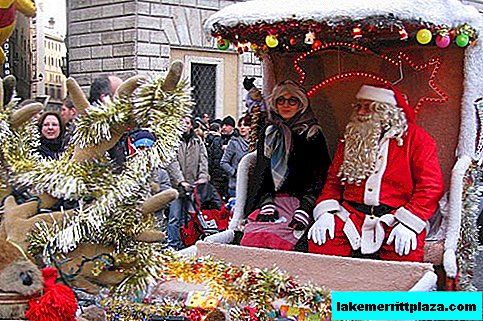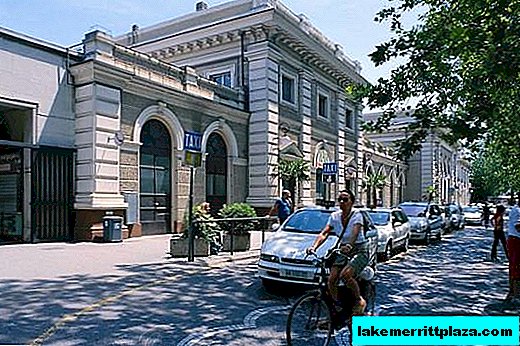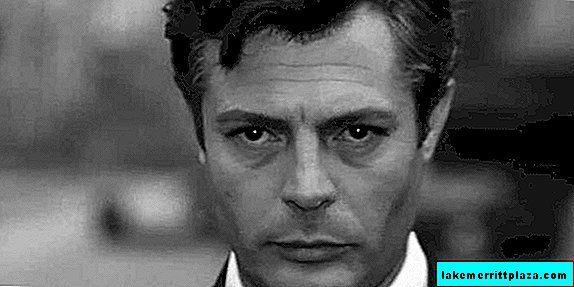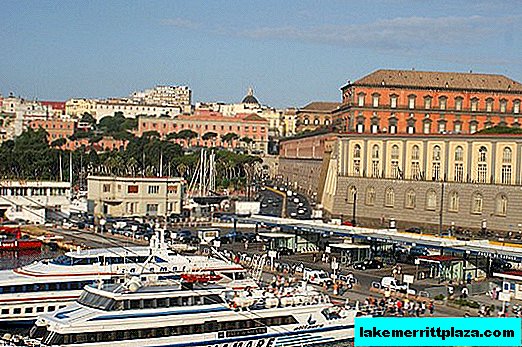There are a great many holidays in Italy - these are state, religious, and regional holidays; perhaps, even Italians themselves cannot list them all. But there are 12 major holidays that are recognized as official throughout the country - these days state institutions, banks, most shops are closed, and public transport operates on a Sunday schedule. Many museums and exhibition halls on holidays also have a rest from visitors.
New Year, January 1
The New Year or, as it is called in Italy, Capodanno - the head of the year, is celebrated by Italians on the Gregorian calendar on the night of December 31 to January 1. Despite the fact that many establishments do not work on the holiday, you won’t be bored on New Year's Eve - public festivities are organized on the streets, grandiose shows, carnivals, fireworks are organized on the main squares of Italian cities.

On New Year's Eve, Italy hosts grandiose performances and fireworks
In Rome, the main action takes place on the Piazza del Popolo, where at night entertaining events for adults are held, and in the morning of January 1, circus artists for children begin to perform. Venetians celebrate New Year in Piazza San Marco, residents and guests of Rimini - in Piazza Fellini, and Turinians - in Piazza San Carlo. January 1 is an official day off, but if it falls on Saturday or Sunday, then Monday following them is also declared a day off.
Epiphany, January 6
Epiphany Day is one of the most revered religious holidays in Italy, completes the Christmas event. The main symbol of this holiday is the good witch Befana, who distributes gifts in memory of those gifts that the magi brought to Jesus.

The symbol of the Feast of the Epiphany - the good witch of Befan
Befana enters the houses through the chimney and puts delicious sweets in the stockings of obedient children, and to cobblers and hooligans - coals of colored sugar. In the Vatican, on the day of the Epiphany, the Pope reads a festive sermon, in Rome a one-day fair is organized, and in Venice, the festival is celebrated with a solemn costume parade on boats through the city canals.
Easter (date varies)
Easter is the main spring holiday in Italy. There is no clearly established date for this holiday, it can vary from late March to late April (Easter dates in Italy 2012-2025 can be found here). On this day, a traditional festive mass is held, at the end of which the Pope blesses all those gathered in the square near St. Peter's Basilica. Festivities, theatrical performances telling about the life of Jesus Christ are held all over the country.

On Easter, Italians give each other colored eggs, often made of chocolate
Italians give each other one of the main symbols of Easter - colored eggs, but if earlier the eggs were mainly chicken, then now they are everywhere replaced by chocolate. Italian housewives will certainly arrange a big cleaning before Easter, and also prepare holiday dishes - traditional colomba, reminiscent of our Easter cakes, as well as all kinds of sweets.
Easter Monday
La Pasquetta - Little Easter, is celebrated the day after Easter Sunday. On Easter Monday, Italians traditionally go on outing outings with friends or neighbors.

On Easter Monday, Italians go on outing picnics
In cities, festive concerts, dance marathons, theater performances, and a variety of games and competitions are held. In addition to traditional egg skating in some regions of Italy, cheeses are skated - large cheese heads are rolled around the city walls. Government agencies do not work on Easter Monday, but museums and exhibitions are usually open.
Liberation Day, April 25th
Liberation Day - national holiday in Italy - celebrated on April 25, the day the country was liberated from fascism. It was from this day that a new stage in the history of Italy began - hundreds of Italian cities and villages were liberated and a huge number of people were saved.

Italians celebrate Liberation Day on April 25
On this day, ceremonies, historical reconstructions, festivals, fairs, concerts are held in the cities of the country. Major attractions and museums on Liberation Day work. April 25th is also celebrated in Venice St. Mark's Day - the patron saint of the city, which is celebrated by mass processions and other special occasions.
Labor Day, May 1
Labor Day is another wonderful spring holiday in Italy, which the Italians celebrate differently: some participate in ceremonial parades and processions, others sing serenades under the windows of loved ones, and others, taking a short vacation, go to the country's southern resorts.

Italians celebrate labor day in different ways
There is an interesting Italian tradition - to decorate May Day tree on Labor Day. Its role can be played by both a real living tree, and an ordinary pillar, decorated with ribbons, garlands and flowers. Around the May Day tree, dances, sing, dance, play, and also fireworks. On city squares are rock and pop concerts, theater performances, discos.
To be continued…
Photos by: Dario Prodan, Claudia Gold, Gianni, Marit & Toomas Hinnosaar, Ricky, Amesci Gallery, Cinzia Tempest.








